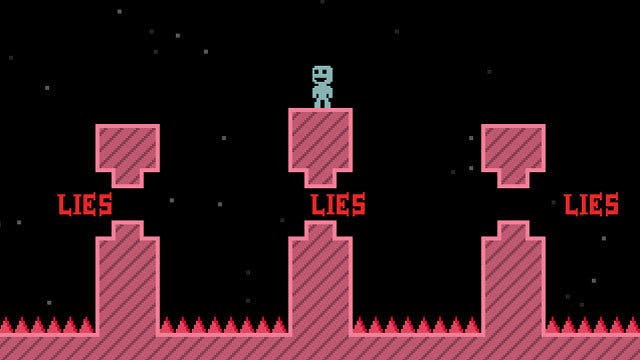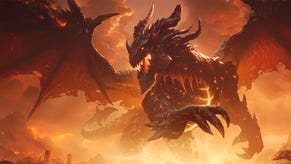No pain, no game
Are hardcore gamers really just masochists?
"The more the game induces or blatantly railroads the player down difficult paths, the more masochistic the game becomes, I think. Provided it crosses a certain threshold of addiction and replayability."
According to Adams, setting difficult goals doesn't automatically make a game masochistic.
"There's more to it than that. Take I Wanna Be The Guy, for example. There's an extreme, unavoidable, repetitive element to the failures. A game that induces a player to try something over and over again, while giving just a little bit of progress in return, is a good example of a masochistic game.
"Dwarf Fortress lashes you repeatedly with the interface while you struggle to extract pleasure despite all the pain, without the same kind of repetitive element."
Adams says that the satisfaction to be had while playing Dwarf Fortress comes "despite the torments", rather than overcoming repetitive failures. "Perhaps in this sense the repetitive, linear game can be said to be properly masochistic, whereas Dwarf Fortress is just torturing you while you are trying to have a good time."
It is true that in Dwarf Fortress you can set your own goals - deciding what to mine, what to build and what to trade with outsiders - but the only possible future for your fortress is an often frightening, more often amusing, but always tragic one.

It may then be fair to say, then, that the game attracts a certain type of player. Masochists. Madmen and madwomen. What other way is there to describe a person whose idea of a good time is to erect an underground fort via the use of a torturous GUI, only to see it crumble in the face of any one of tmany potential catastrophes? It is fitting that one of the possible downfalls of a dwarven outpost is that the inhabitants go berserk.
When you suggest this to the playerbase, the response is a jubilant scream, a terrifying rally of bloodied, grinning faces laughing into their pus-filled rags while holding aloft a banner made of dismembered torsos. It's adorned with the community motto: "Losing is fun!"
"Given that it's the dwarves who are suffering when you fail, perhaps it's more sadistic than masochistic," Adams laughs. "I wouldn't see it that way though, since the demise of a fortress can be enjoyable in many ways.
"I'm not sure it's masochistic, undertaking a process in which you know something you work hard on over time is going to fall apart. The game is easy enough once you learn it that this might not be an expectation anyway.
"For me, a fortress loss can bounce between being hilarious, being bittersweet and causing panic. And it can have a longer term feel to it, like an embrace of fate or entropy. As the game's development progresses it should also feel like becoming part of history or leaving a legacy."
"It'll be necessary to encourage losing in full, rather than reloading saves, to allow the player to experience the full breadth of the game."
In conclusion, then. When a game incorporates excessive or extreme loss into the core gameplay, and not only remains enjoyable but becomes more enjoyable as a result, it becomes masochistic.
Developers have begun to realise this and are now creating game features which subtly reward death. It's why, with Super Meat Boy, you get a video replay when you finally complete a level, showing hundreds of your death-splatters and failed attempts.
This is a reward for overcoming the odds. It's also a means of making you associate all those bloodstains and failures with a sense of victory.
Maybe there are no such things as masochist games, just masochistic gamers. Regardless of mechanics, Meat Boy and Captain Viridian are undeniably masochistic characters. Despite thousands of deaths they each sport a constant grin, crazed and joyous, enthusiastic and unsettling.
Look closely. It's a grin you might wear yourself.








